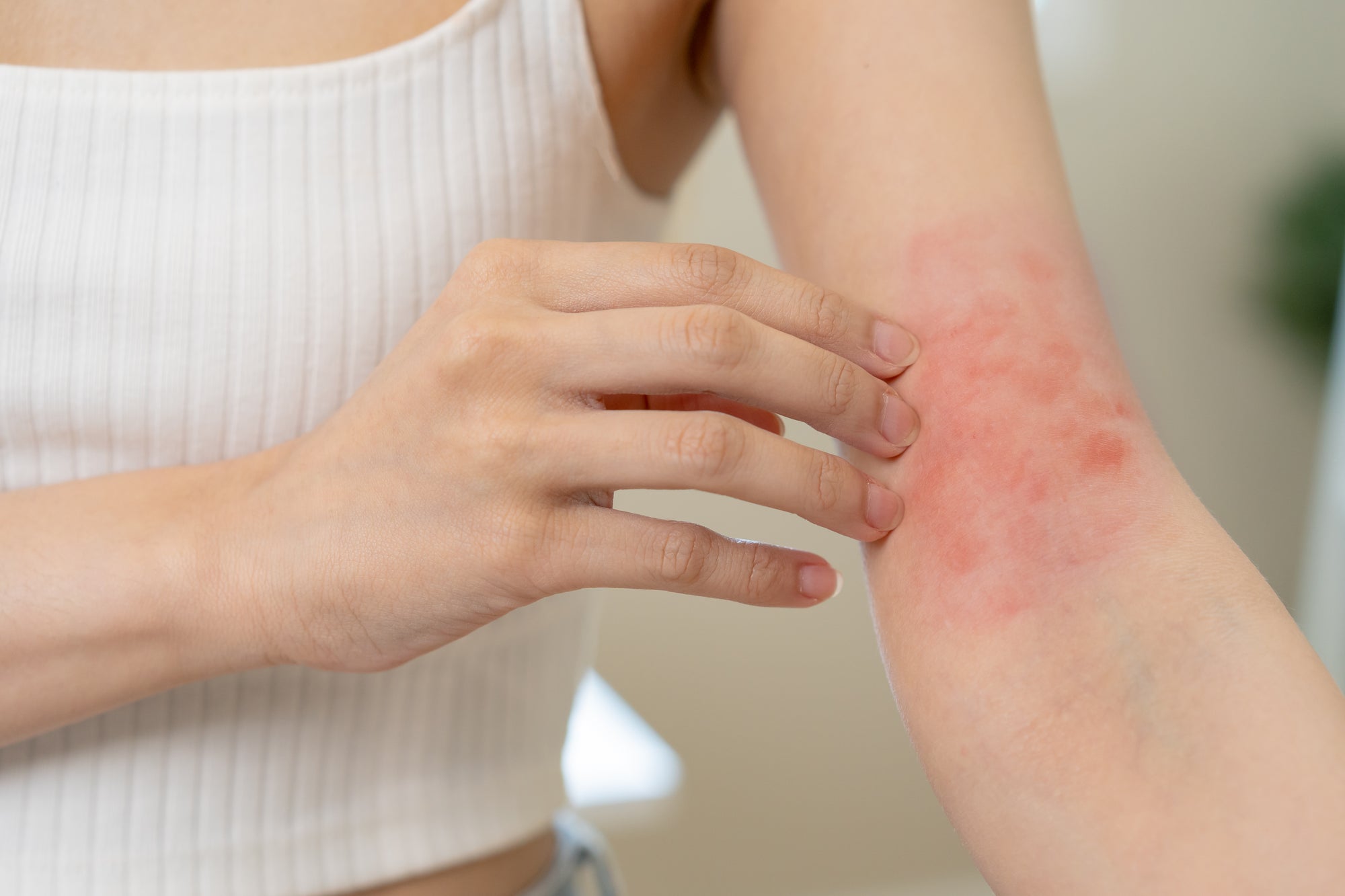What Actually is Eczema?
•Posted on October 09 2024

What is eczema?
Eczema is a skin condition that has a typical pattern and collection of symptoms. The skin becomes red and hot (known as inflammation) and the surface dry and scaly. Itching is the most common symptom experienced.
When people refer to ‘eczema’ they often mean ‘atopic eczema’ (also known as atopic dermatitis). Atopic eczema is the most common form of eczema - but others exist so getting a diagnosis is important!
Atopic eczema is a type of eczema that’s related to allergy. Atopy is a type of allergy where the immune system (which usually fights infection) targets harmless things in our environment, such as pollen and food. This creates a pattern of inflammation that manifests on the skin as eczema. Atopy inflammation can also affect other parts of the body - causing food allergy, asthma and hayfever. This combination of different conditions is sometimes called the ‘atopic march’. The term ‘march’ is used, as these conditions start at different ages. Eczema is usually the first to develop, but eczema can start at any age - even in adults.
Atopic eczema typically starts on the cheeks in babies, then spreads to the creases of the arms and legs in older children and adults. It can be widespread and affect the whole body. Although blood tests are sometimes used, there’s no single test that can diagnose atopic eczema. It all depends on your symptoms and the dermatologist’s trained eye.
What are the other types of eczema?
There are lots of other forms of eczema:
Contact eczema - this is a type of eczema caused by substances that come in direct contact with your skin. This can be due to irritation (eg from detergents in soaps) or a type of allergic reaction (eg from cosmetics). It can affect different parts of the body but common sites are the face, hands and bottom.
Varicose eczema - this is a type of eczema that affects the legs and is seen together with varicose veins.
Seborrhoeic eczema - this is a type of eczema caused by a yeast infection. It usually affects the scalp and face.
Asteatotic eczema - this is a form of eczema that affects older people due to very dry skin.
Drug induced eczema - eczema can be caused by certain medications such as statins.
Lichen simplex - this is an isolated, thickened itchy patch of eczema.
Pompholyx - this is a form of eczema that causes blisters and is seen on the hands or feet.
Discoid eczema - this is a pattern of eczema that forms round, itchy patches.
Different types of eczema can overlap. For example people with atopic eczema are more likely to get contact eczema - so the two types are occasionally seen together.
Could it be anything else?
Yes - lots of other skin conditions are red, itchy and scaly. For example psoriasis, fungal infections and sun reactions can all mimic eczema. There are over 2,000 different skin conditions so many rarer conditions can look very similar to eczema. Dermatologists are trained to recognise and treat these conditions. If you’re eczema treatment isn’t working - see a dermatologist as your rash may be something else. Usually eczema is diagnosed by asking questions and looking at the skin. If the doctor is unsure they may take a skin biopsy. This is a small hole punch of skin taken under a local anaesthetic. The sample is processed and reviewed by a histopathologist doctor, who looks at the skin under the microscope.